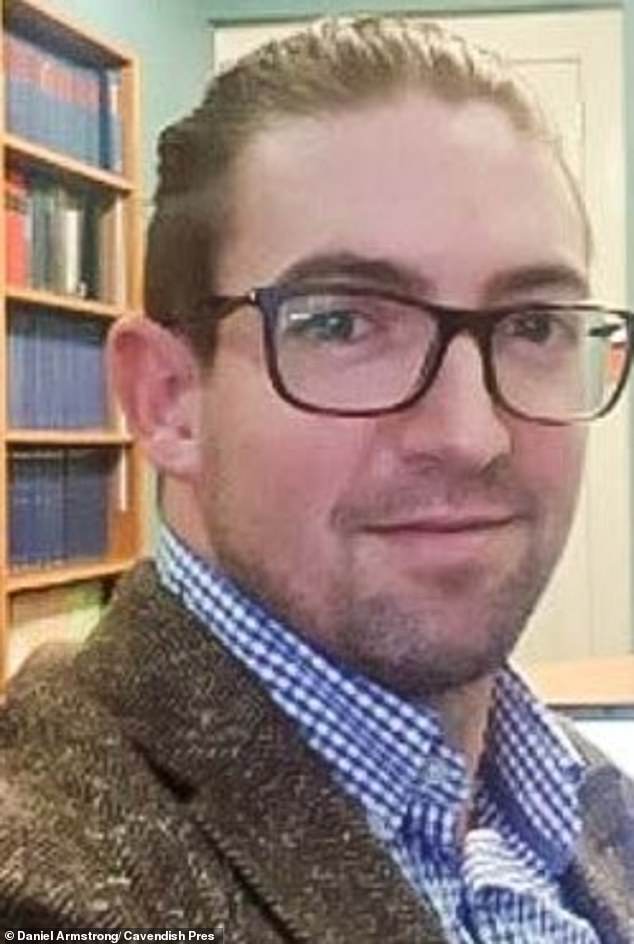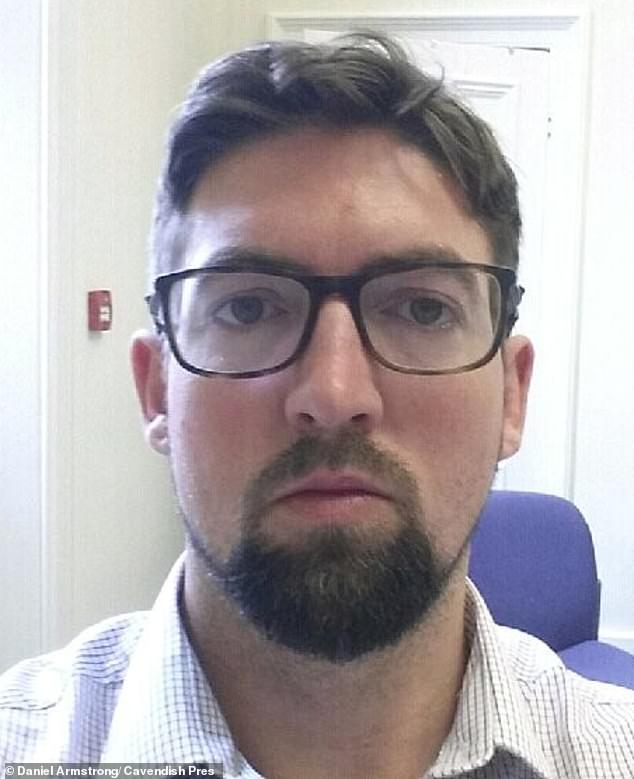Senior NHS doctor who shared ‘scaremongering’ Covid vaccine conspiracy theories and told people not to take them is struck off and branded a risk to patients
A senior NHS doctor who raised concerns about the safety of Covid vaccines has been struck off the medical register for misconduct after a tribunal described his comments as ‘scaremongering’.
A hearing in Manchester concluded that Daniel Armstrong, a 35-year-old consultant psychiatrist, had undermined public health information and confidence in the medical profession after branding pharmaceutical companies ‘evil’.
The decision comes after concerns were raised about a film Armstrong, who was based at based at Northumbria specialist emergency care hospital in Cramlington, published on BitChute.
In the footage the consultant identified himself as a doctor before questioning the safety and effectiveness of Covid vaccines, which he claimed were at the heart of a grand deception.
‘I am using my doctor title, my registration under the GMC in the UK, to bring you this message about what the truth is, but also highlight the deception,’ Armstrong said in a near two-hour video entitled Navigating the Truth-Deception Reality.
‘We are being lied to on a cosmic scale, a global scale, and there is a huge agenda why they are lying to us. In essence, you know that you were lied to.
‘Whether you took the jab or not, they lied to us all. They said it was safe and effective, and they couldn’t have known whether it was safe or effective.
‘They couldn’t have known after three months.
‘My message is clear to everyone: don’t take any more. You’ve a doctor here, he’s got his licence on the line – given it up. Don’t take any more of the injections. These guys are evil.’



A three-strong panel convened by the medical practitioners tribunal service acknowledged Armstrong’s right to freedom of speech under the European Convention on Human Rights.
But the panel concluded that the doctor’s words ranged beyond free speech, drawing on an ‘outlandish’ rationale and ‘inflammatory and emotive words’ to justify ‘unprofessional and unacceptable conduct’.
‘The tribunal recognised that Dr Armstrong has a right to express himself freely, to hold his opinions and share them with others,’ said the panel.
‘However… the opinions advanced could be described as “scaremongering”, in that they contained clear and unambiguous assertions that Covid vaccines are not safe and instruction/ direction that people should not take them.
‘He asserted that the public has been deceived, but the tribunal found that much of the rationale relied upon by Dr Armstrong to support his opinions is outlandish and bears no obvious relationship to medicine or medical research.
‘The opinions included representations of wholesale deceit by the pharmaceutical industry, and statements about collusion between that industry and other authorities.
‘In the Tribunal’s view, the opinions and rationale expressed by Dr Armstrong, and the way in which he expressed them, which included use of inflammatory and emotive words such as “evil”, crossed the threshold from legitimate, medical opinion into the realms of unprofessional and unacceptable conduct.’
The panel also questioned the relevance of Armstrong’s references – which included allusions to freemasonry, ancient Greek and symbolism – to his broader argument about an alleged ‘cover-up operation’ by the government and pharmaceutical industry.
Robin Kitching, counsel for the General Medical Council, noted that despite telling an interim orders tribunal held in September that the video was a ‘one-off’, Armstrong posted a film entitled The God Conspiracy the following month in which he said he was being ‘persecuted’ by the GMC.
In the concluding minutes of the video, Armstrong branded big pharma ‘a big con’ and referred to the GMC as ‘scumbags’, said Kitching, who added that the doctor also described the tribunal as a ‘kangaroo court’.
‘There is clear evidence he has no insight whatsoever, indeed he continues to vehemently hold the views expressed in the video in question and feels that it is the rest of the profession and the regulator who are in the wrong,’ said Kitching.
The tribunal concluded that Armstrong was ‘highly likely in future to act so as to put patients at unwarranted risk of harm’.


